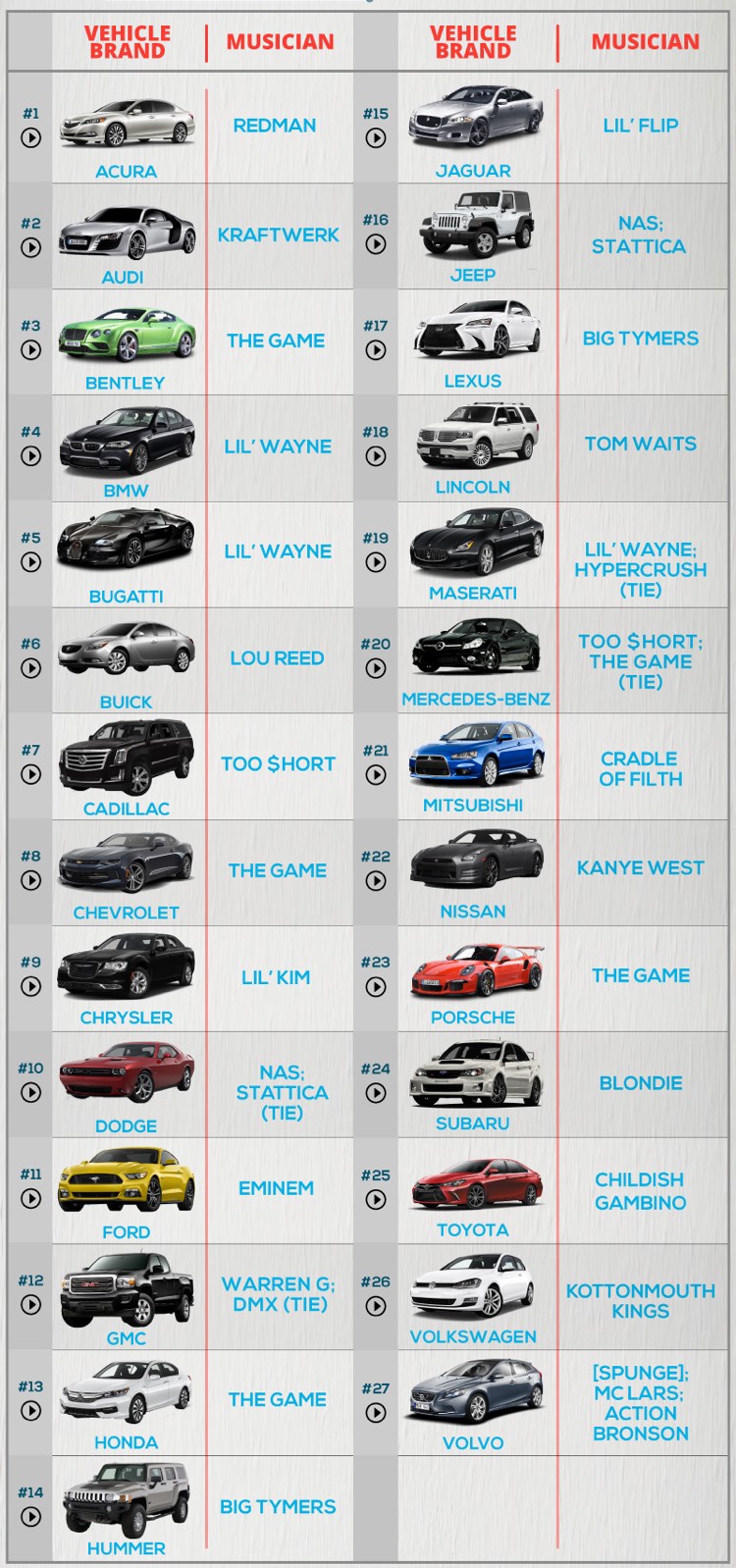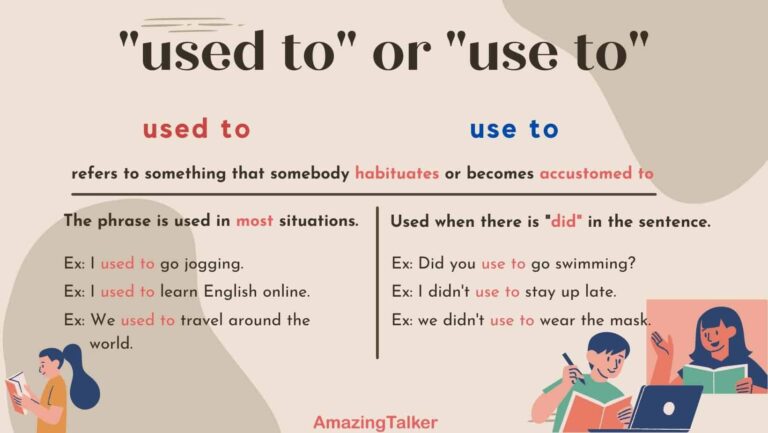Unknown Car Brands: Unveiling the World Beyond the Mainstream
Unknown Car Brands: Unveiling the World Beyond the Mainstream cars.truckstrend.com
In an automotive landscape dominated by a handful of global giants, it’s easy to overlook the vibrant, often groundbreaking world of Unknown Car Brands. These are the manufacturers operating outside the mainstream spotlight – be they nimble startups pioneering new technologies, boutique artisans crafting ultra-exclusive vehicles, or regional players serving specific markets. Exploring these lesser-known entities offers a fascinating glimpse into the industry’s diversity, innovation, and potential future, challenging our perceptions of what a car can be and who can build it. For enthusiasts, early adopters, and those simply seeking something truly unique, delving into the realm of Unknown Car Brands is an adventure ripe with discovery and distinct advantages, albeit with its own set of considerations.
Unknown Car Brands: Unveiling the World Beyond the Mainstream
Defining the "Unknown": What Constitutes an Unknown Car Brand?
The term "Unknown Car Brands" isn’t a static category; rather, it encompasses a diverse group of automotive manufacturers that, for various reasons, don’t possess the widespread recognition of established giants like Toyota, Volkswagen, or Ford. These brands often fall into several distinct types:
- Emerging EV Startups: Perhaps the most dynamic segment, these companies (e.g., Rivian, Lucid Motors, Nio, Xpeng, VinFast) are primarily focused on electric vehicles. They often leverage cutting-edge battery technology, advanced software, and innovative manufacturing processes to challenge the status quo. While some are gaining traction, many remain relatively "unknown" to the broader public compared to Tesla or legacy automakers’ EV offerings.
- Boutique Hypercar/Supercar Manufacturers: These are the artisanal workshops producing ultra-exclusive, incredibly high-performance vehicles in extremely limited numbers (e.g., Koenigsegg, Pagani, Rimac Automobili, SSC North America). Their cars are engineering marvels, often pushing the boundaries of speed, design, and material science, but their astronomical price tags and scarcity keep them out of public consciousness.
- Niche Performance/Track-Focused Brands: Designed for the purest driving experience, these brands prioritize lightweight construction, raw power, and minimalist design, often at the expense of practicality (e.g., Ariel, Caterham, KTM X-Bow). They cater to a dedicated segment of driving enthusiasts and are rarely seen on public roads outside of specific events.
- Luxury/Ultra-Luxury Niche Brands: Operating in the rarefied air of bespoke automotive craftsmanship, these brands focus on unparalleled luxury, comfort, and customization (e.g., Karma Automotive, Hispano Suiza, some bespoke coachbuilders). Their vehicles are often hand-built to exacting client specifications.
- Regional/Specialty Brands: These manufacturers primarily serve specific geographical markets or niche applications (e.g., some smaller European microcar makers, certain Asian commercial vehicle manufacturers, or custom off-road builders). Their products may be well-known locally but have little to no global presence.

What unites these disparate entities is their limited market penetration, often minimal advertising outside targeted channels, and a focus on specialized products rather than mass-market appeal, contributing to their "unknown" status for the average consumer.
The Allure of the Obscure: Why Explore Unknown Car Brands?
Despite their lack of widespread recognition, Unknown Car Brands offer compelling reasons for exploration and ownership:
![]()
- Innovation and Cutting-Edge Technology: New startups, especially in the EV space, are unburdened by legacy infrastructure and often serve as incubators for radical new technologies, from advanced battery chemistries and charging solutions to sophisticated autonomous driving systems and unique user interfaces.
- Exclusivity and Uniqueness: Owning a vehicle from an unknown brand guarantees a level of exclusivity that mainstream cars simply cannot offer. It’s a statement of individuality, ensuring you stand out in a parking lot full of common models.
- Potential Value and Investment: While not guaranteed, some niche or limited-production vehicles from unknown brands can become highly sought-after collectibles, appreciating in value over time. For emerging brands, getting in on the ground floor might offer a unique investment opportunity if the company succeeds.
- Performance and Niche Appeal: Many unknown brands excel in specific areas, whether it’s raw, unadulterated performance, unparalleled luxury, or extreme off-road capability. They are often built with a singular purpose, delivering a more focused and intense driving experience.
- Supporting Diversity and Competition: By exploring and supporting smaller, innovative brands, consumers contribute to a more diverse and competitive automotive industry, encouraging new ideas and challenging the dominance of established players.

Navigating the Uncharted Waters: Important Considerations Before Buying
While the appeal of Unknown Car Brands is strong, potential owners must approach them with a clear understanding of the unique challenges involved:
- After-Sales Support & Service Network: This is arguably the biggest hurdle. Unlike major brands with thousands of dealerships, unknown brands may have a very limited service footprint, making routine maintenance or repairs difficult and time-consuming. Parts availability can also be a significant issue, often requiring direct ordering from the manufacturer or specialized suppliers.
- Resale Value: Generally, vehicles from unknown brands tend to have lower resale values due to lack of brand recognition, limited demand, and concerns about long-term support. However, exceptions exist for highly exclusive or collectible models.
- Reliability & Build Quality: While many new brands aim for high quality, their lack of long-term production history means less public data on reliability. Early models from startups can sometimes suffer from initial quality control issues.
- Safety Ratings: Many smaller brands do not subject their vehicles to extensive independent crash testing (e.g., NHTSA, Euro NCAP) due to cost and limited production numbers, making it harder to assess their safety performance.
- Insurance & Financing: Insuring a rare or unknown vehicle can be more expensive due to specialized parts and repair complexity. Similarly, traditional banks might be hesitant to offer financing for brands without a proven track record.
- Warranty Concerns: Understand the warranty terms thoroughly. Who honors it? What’s the process for claims if there are no local service centers?
How to Research and Discover Unknown Car Brands
Embarking on a quest to find the perfect vehicle from an Unknown Car Brand requires diligent research and a proactive approach:
- Online Forums and Communities: Dedicated enthusiast forums, Reddit communities (e.g., r/cars, brand-specific subreddits), and social media groups are invaluable. Current owners and long-time followers often share real-world experiences, common issues, and service advice.
- Specialized Automotive Publications: Magazines and websites focusing on performance cars, luxury vehicles, or electric vehicle technology are more likely to feature in-depth reviews and news on emerging brands.
- Motor Shows and Expos: International and regional auto shows are prime venues for new and niche brands to debut their vehicles. Attending these events allows for direct interaction with company representatives and a chance to see the vehicles up close.
- YouTube and Automotive Influencers: Many car reviewers on platforms like YouTube specialize in showcasing unique or emerging vehicles, offering visual tours and driving impressions that might not be available elsewhere.
- Financial and Tech News: Keep an eye on business and tech news for announcements about funding rounds, production milestones, and strategic partnerships related to EV startups or advanced automotive ventures.
- Direct Manufacturer Contact: Don’t hesitate to reach out directly to the brand for information on their vehicles, production plans, service network, and warranty details. A transparent and responsive manufacturer is a good sign.
- Due Diligence: Before making any commitments, research the company’s financial stability, leadership team, and past performance. Understand their production capabilities and long-term vision.
Tips for Potential Owners and Enthusiasts
For those considering a dive into the world of Unknown Car Brands, here are some practical tips:
- Join Owner Groups Early: Connect with existing owners. Their collective experience is your best resource for troubleshooting, finding parts, and locating reliable service.
- Seek Pre-Purchase Inspections (PPI): If buying a pre-owned vehicle, arrange for a PPI by a specialist mechanic, ideally one familiar with niche vehicles or advanced electrical systems.
- Understand Your Risk Tolerance: Be realistic about the potential for higher maintenance costs, longer service times, and potentially lower resale value. This is a journey for those who value uniqueness over absolute practicality.
- Network with Independent Specialists: Build relationships with mechanics who are open to working on less common vehicles. They may be willing to learn the specifics of your chosen brand.
- Consider a Lease (for new startups): For very new EV startups, a lease might be a safer option than outright purchase, as it mitigates the long-term risk of unproven reliability or potential company failure.
- Factor in Insurance Costs: Get quotes before committing. Rare vehicles can be significantly more expensive to insure.
- Document Everything: Keep meticulous records of all service, repairs, and modifications. This is crucial for future maintenance and potential resale.
- Embrace the Journey: Owning an unknown brand vehicle is often more than just transportation; it’s a statement, a conversation starter, and an immersion into a unique automotive subculture.
Price & Value Snapshot: Understanding Unknown Car Brands
The "price" of Unknown Car Brands is incredibly varied, reflecting their diverse categories, production volumes, and target markets. Unlike mainstream brands with predictable price tiers, these vehicles can range from budget-friendly regional models to multi-million-dollar hypercars. The table below offers a generalized overview of typical price ranges and associated value propositions and challenges.
| Category of Unknown Brand | Typical Price Range (USD) | Key Value Proposition | Common Challenges |
|---|---|---|---|
| Emerging EV Startups | $40,000 – $150,000+ | Cutting-edge tech, high performance (EV), unique design, sustainability focus, potential for OTA updates | Immature service network, unproven long-term reliability, uncertain resale, potential for production delays |
| Boutique Hypercars | $1,000,000 – $5,000,000+ | Extreme performance, ultimate exclusivity, bespoke craftsmanship, potential as an appreciating asset | Astronomical costs (purchase, maintenance, insurance), extremely limited parts availability, highly specialized technicians required |
| Niche Performance/Track | $30,000 – $150,000 | Raw, unadulterated driving experience, lightweight construction, pure performance, track-day focused | Impractical for daily use, limited comfort/features, high maintenance for track use, specialized or custom parts |
| Luxury/Ultra-Luxury Niche | $150,000 – $1,000,000+ | Bespoke customization, opulent interiors, unique design, unparalleled comfort, high exclusivity | Very high depreciation (unless highly collectible), limited service centers, expensive proprietary parts, specialized repairs |
| Regional/Specialty Brands | $15,000 – $70,000 | Value for money, specific utility (e.g., small urban cars, rugged off-roaders), local market fit, often simpler mechanics | Limited global appeal, parts/service outside home region can be impossible, potentially lower safety standards (depending on market) |
Disclaimer: These are broad generalizations. Actual prices can vary wildly based on specific models, features, market demand, and production volume. The "value" is subjective and depends on the buyer’s priorities and risk tolerance.
Conclusion: The Future is Diverse
The world of Unknown Car Brands is a fascinating and ever-evolving frontier within the automotive industry. While they may lack the ubiquitous presence of their mainstream counterparts, these brands are often at the forefront of innovation, design, and specialized performance. For the adventurous enthusiast, the early adopter, or simply anyone seeking a vehicle that truly stands apart, exploring these hidden gems offers unparalleled opportunities for unique ownership experiences. However, this journey requires careful consideration of the practical challenges, from service and parts to resale value. Ultimately, embracing the unknown is about celebrating diversity, supporting ingenuity, and finding that rare, exceptional machine that perfectly aligns with your passion for driving. The future of automotive transportation is likely to be far more diverse than ever before, and Unknown Car Brands are a testament to that exciting evolution.
Frequently Asked Questions (FAQ)
Q1: Are Unknown Car Brands reliable?
A1: Reliability can vary significantly. Established unknown brands (like boutique hypercar makers) often have excellent build quality but may require specialized maintenance. New EV startups might have initial quality issues common to new manufacturers, and their long-term reliability is unproven due to their newness. Less public data is available compared to mainstream brands.
Q2: Is it hard to get parts for Unknown Car Brands?
A2: Often, yes. Unless the brand uses common off-the-shelf components, proprietary parts can be difficult to source, expensive, and subject to long wait times. This is especially true for limited-production or highly specialized vehicles.
Q3: Do Unknown Car Brands hold their value?
A3: Generally, vehicles from unknown brands tend to depreciate more quickly due to limited demand and lack of brand recognition. However, highly exclusive hypercars or certain limited-production models can appreciate significantly over time, becoming collector’s items. Emerging EV startups have volatile resale values, depending on the company’s success.
Q4: Where can I buy cars from Unknown Car Brands?
A4: Many unknown brands sell directly from their factories or through a very limited network of specialized dealerships. For new startups, online pre-orders or direct sales models are common. Some older or niche models might be found through specialized used car dealers or online enthusiast communities.
Q5: Are Unknown Car Brands safe?
A5: Safety varies greatly. While all vehicles must meet minimum safety standards in their target markets, many smaller brands do not undergo extensive independent crash testing (like Euro NCAP or NHTSA) due to cost and limited production. Always research the specific brand’s safety features and any available test data.
Q6: What are the main benefits of buying an Unknown Car Brand?
A6: The primary benefits include exclusivity, unique design, cutting-edge technology (especially in EVs), often superior performance in specific niches, and the satisfaction of owning something truly distinct from the mainstream.
Q7: What are the main risks of buying an Unknown Car Brand?
A7: Key risks include limited or non-existent service networks, difficulty and cost of obtaining parts, uncertain resale value, potential reliability issues, higher insurance costs, and challenges with financing. The long-term viability of some new companies can also be a concern.


